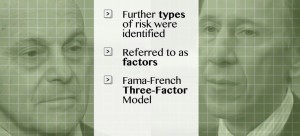
By Cameron Webster, CFA
Institutional Portfolio Manager, Mawer Investment Management Ltd.
Special to the Financial Independence Hub
At Mawer, we spend a great deal of time asking and answering the question: So what? A company’s share price is down 6% … so what? A central bank moved interest rates up … so what? Google re-named itself Alphabet … so what?
It’s not always an easy question to answer and often leads us to ask even more questions in an effort to develop key investment insights.
“So what?” is one of the questions that can lead us to investment action (or inaction) in our process of building well-diversified, resilient portfolios. In an effort to pass on our “so what” learnings, I interviewed our Chief Investment Officer, Jim Hall, with specific questions pertaining to his views on risks in the current environment.
Cameron Webster: Jim, we decided at the conclusion of our slow growth world discussion that we’d address technological disruption. Let’s get into the “so what?” of it. What is technological disruption?

Jim Hall: It’s many things. It has happened in many industries; rail to auto, telegraph to telephone, typewriter to word processing, CD’s to online music. Of interest to me is where an innovation ends up displacing a whole industry and the ones that support it—and sometimes changes society too.
For example, take e-commerce and the sharing economy. Companies like Uber and Airbnb are changing the economy in significant ways through the application of technology. These companies are growing very fast and they are stealing business from other companies. This may lead to lower growth overall, at least temporarily. That’s the disruption. This dynamic has been around a long time. Clayton Christensen called it “disruptive innovation” and John Maynard Keynes called it “technological unemployment.” Many people have written and talked about the consequences of structural economic disruption over the years—and many are fretting about it now.
CW: How does the disruption manifest itself? Continue Reading…



